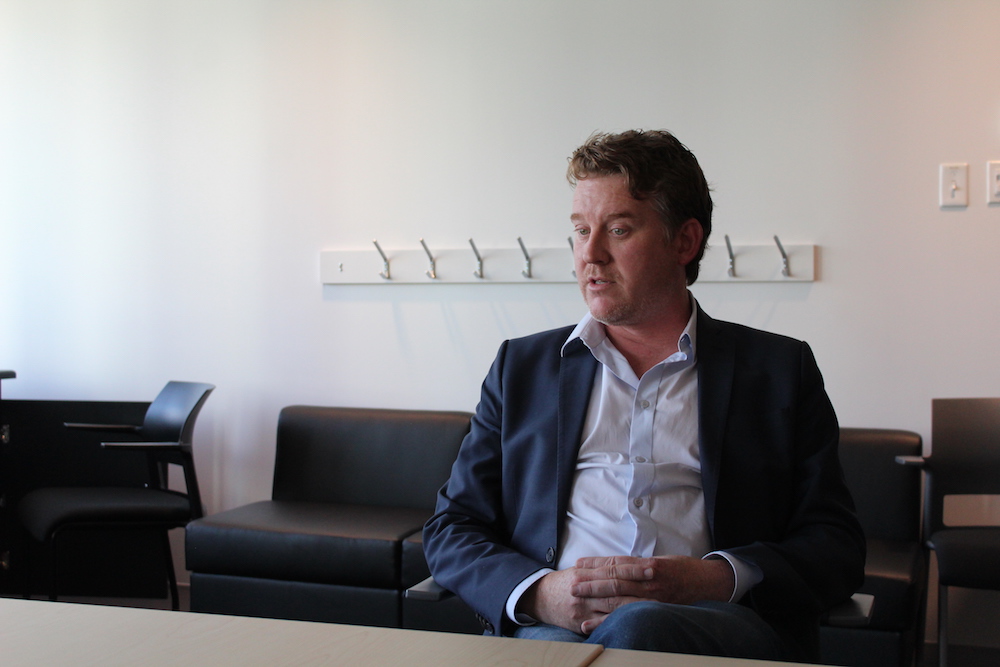Rohingya killings are textbook case of ethnic cleansing, says institute’s executive director
Last week, the United Nations high commissioner for human rights, Zeid Ra’ad al-Hussein, condemned the treatment of the Rohingya people by the Burmese government, labelling it a textbook case of ethnic cleansing.
Myanmar’s government has denied the media and international observers access to the Rakhine state located near the Bangladesh border where, according to fleeing villagers interviewed by Human Rights Watch, soldiers from the Burmese military are executing civilians, raping thousands of women and burning down hundreds of Rohingya settlements.
Myanmar has never granted citizenship to the mostly Muslim Rohingya and tensions have been high between them and Myanmar’s Buddhist majority population for years. On Aug. 25, the conflict reached a tipping point when a Rohingya militant group staged a coordinated attack on 24 police stations and outposts in the region, Al Jazeera reported. Since then, the Burmese government has cracked down on the Rohingya under the guise of a security operation, according to the same publication.
The U.N. Refugee Agency estimates that, as of Sept. 11, over 370,000 Rohingya refugees have fled from northwestern Myanmar into Bangladesh.
Kyle Matthews, the executive director of the Montreal Institute for Genocide and Human Rights Studies (MIGS) at Concordia, agreed with the U.N. high commissioner’s accusation. He said the Burmese government is breaking international law by engaging in ethnic cleansing, and people need to speak out. Matthews works with parliamentarians, researchers and activists—including Quebec Senator Romeo Dallaire—to increase public awareness of genocide and violent extremism. MIGS’s goal is to prevent mass atrocities, like the Rwandan genocide, from ever happening again.
Researchers at the institute have been following the situation in Myanmar for years, but as it has become more dire, Matthews has started to speak out. Here’s what he had to say about the Myanmar crisis.
Q: Would you use the term “ethnic cleansing” to describe the situation in Myanmar?
A: I think it’s a textbook case. There are verified reports of villages being burnt. Amnesty International and Human Rights Watch have confirmed, through satellite technology, that it is taking place. There have been tales of refugees crossing into Bangladesh, giving accounts of Myanmar’s military attacking the villages and threatening that if the Rohingya don’t leave, they would kill everyone. It’s ethnic cleansing, that’s for sure.
Q: What’s the definition of ethnic cleansing?
A: Well, there’s a legal definition, and it’s encompassed as one of four mass atrocity crimes under the Responsibility to Protect principles, [a global political commitment endorsed by all U.N. member states]. The term “ethnic cleansing” came out of the Balkan conflict. It’s where you use physical violence to intimidate a population to get them to leave the area where they’re living and to ensure they never come back. So it’s not genocide, where you want to destroy the group in whole or in part, but it’s to basically kick them off the land and make sure they don’t come back. So it fits that. Others have said that there’s also a genocide going on.
Q: Is the distinction between genocide and ethnic cleansing important in this case?
A: No, I don’t think so. Whether it’s genocide or ethnic cleansing has to be analyzed by a court of law, but I think it’s safe to say there are mass atrocity crimes taking place.
Q: The Burmese government is denying access to observers and media in the Rakhine state. Why is that important?
A: I think they’re denying access because they’ve got something to hide. Before all this violence took place, there were crackdowns on international NGOs. We worked with some Canadian NGOs in Rakhine state. They’ve talked about very difficult challenges to get there. Media has had trouble accessing the area. That’s textbook when a government is conducting mass atrocities.
Q: Is it important for countries or leaders to denounce these types of situations?
A: I think it’s important. I think most leaders are afraid to do that, but we have a legal responsibility. Canada, for example, has an additional responsibility because [Myanmar’s leader] Aung San Suu Kyi is an honorary Canadian citizen. We have a responsibility to speak out. International law is quite clear; there’s nothing there that says we’re supposed to be quiet. I think we have to speak out. When you don’t name a certain human rights violation, then you’re avoiding what’s really taking place. So I think, politically, we need to stand out. However, the most positive thing about Myanmar has been all of these other Nobel Peace Prize winners denouncing what’s happening. That gives [the issue] a moral voice, and it also shows political leaders an incentive to be more forceful.
Q: What can individuals do?
A: There’s a lot you can do. First of all, we live in a democracy. We can use our individual voices to write to political leaders—be that the Liberal government or the opposition—to say that this is important to us and we want Canada to take more action, we want Canada to speak publicly and denounce this regime. We don’t have to fall into apathy. We can use our individual power to try to make change. In every humanitarian disaster, it comes down to individuals that show leadership and make a difference.
Photo by Alex Hutchins




